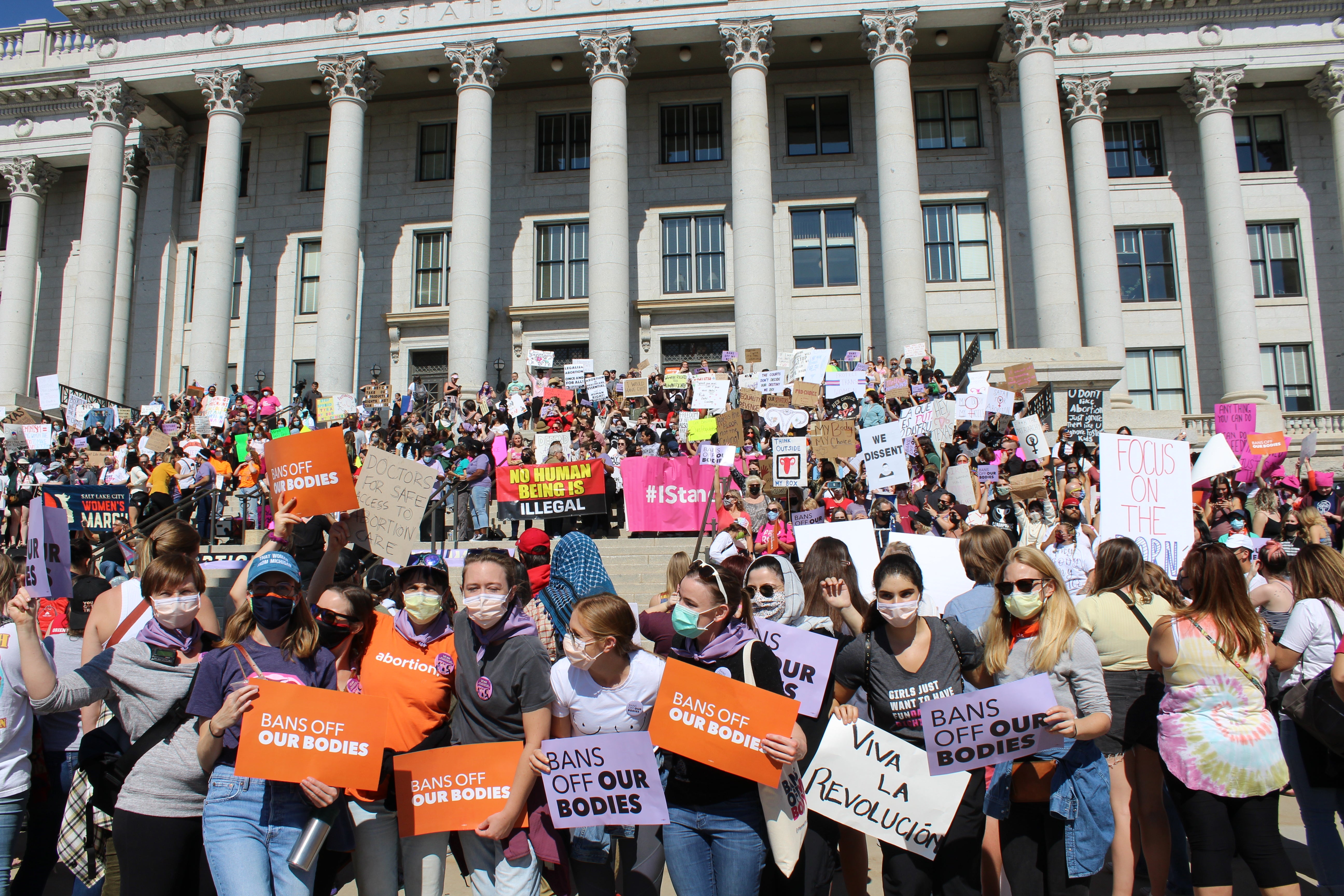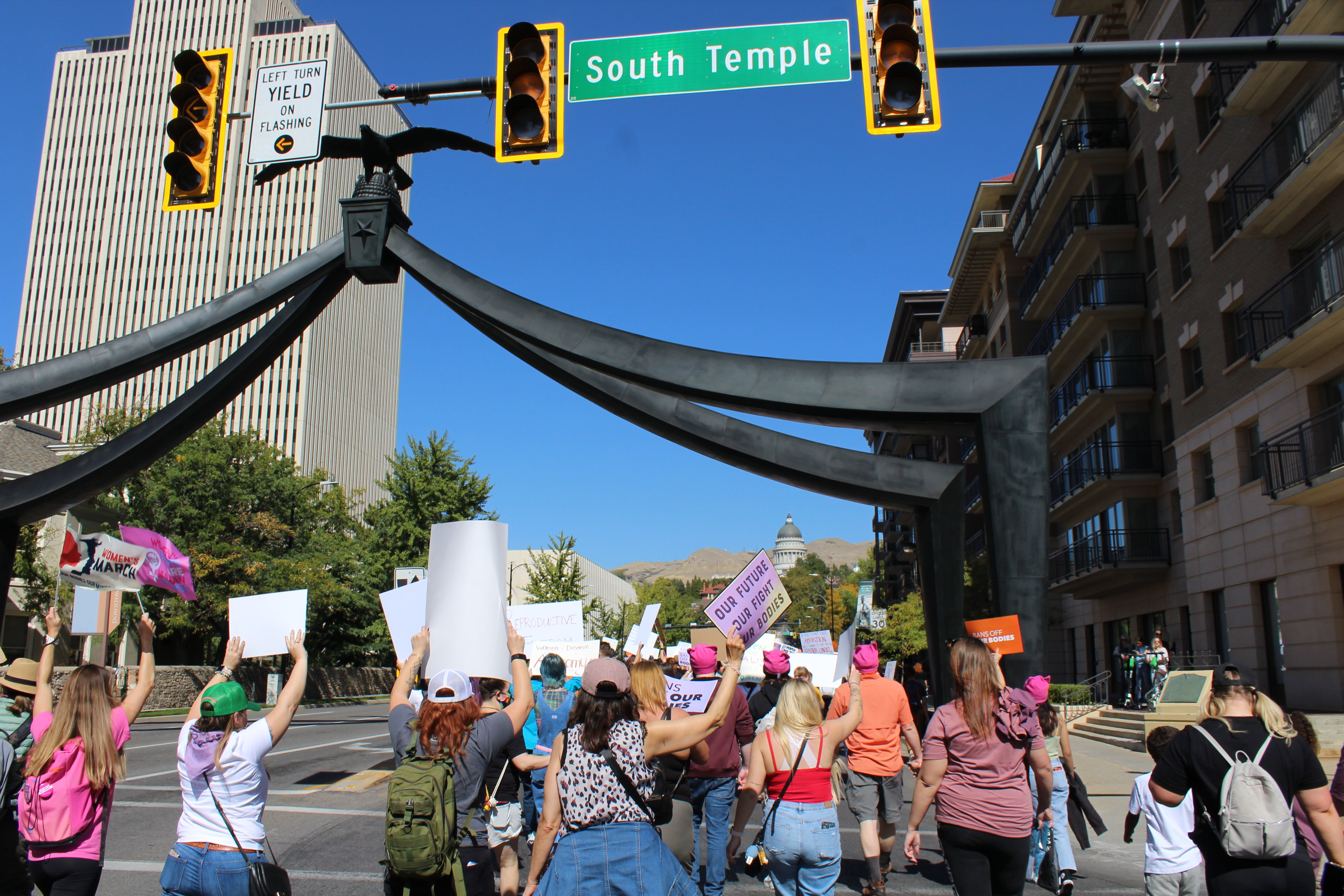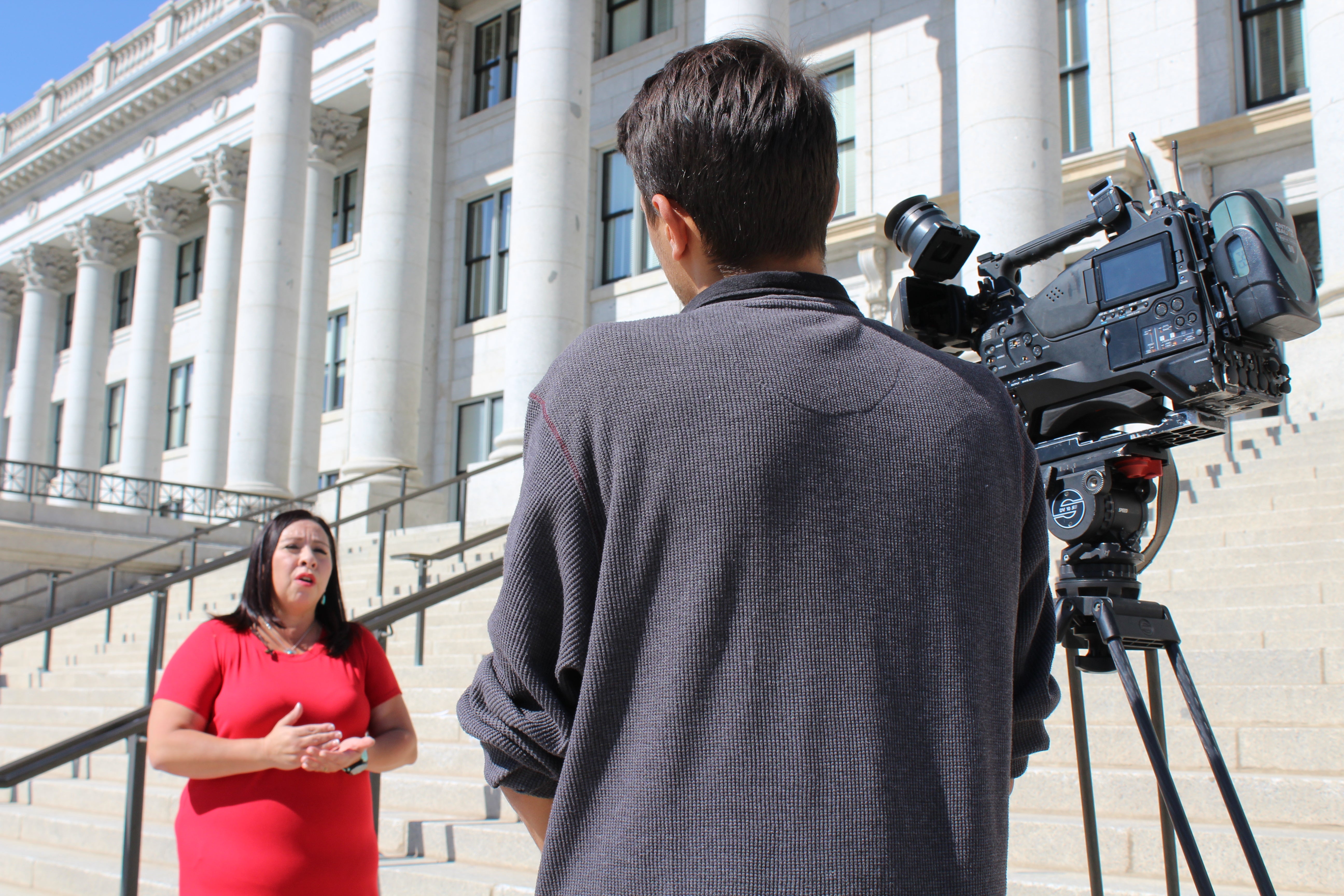‘Bans off our bodies’: Group 1,000 strong gathers in Utah to demand reproductive rights
The event was one of more than 600 held over the weekend nationwide, Enrique Limón reports


Your support helps us to tell the story
From reproductive rights to climate change to Big Tech, The Independent is on the ground when the story is developing. Whether it's investigating the financials of Elon Musk's pro-Trump PAC or producing our latest documentary, 'The A Word', which shines a light on the American women fighting for reproductive rights, we know how important it is to parse out the facts from the messaging.
At such a critical moment in US history, we need reporters on the ground. Your donation allows us to keep sending journalists to speak to both sides of the story.
The Independent is trusted by Americans across the entire political spectrum. And unlike many other quality news outlets, we choose not to lock Americans out of our reporting and analysis with paywalls. We believe quality journalism should be available to everyone, paid for by those who can afford it.
Your support makes all the difference.They came in droves with a unifying message: “My body, my choice.”
DIY signs emblazoned with messages like “Womxn’s rights are human rights”, “Keep your laws out of my uterus” and “Make Margaret Atwood fiction again” were held up high outside Salt Lake City’s administrative building on Saturday as an array of speakers took the lectern.
People like Rae Duckworth, operating chairperson for Black Lives Matter Utah.
“Make some noise if you are here for justice,” Ms Duckworth said, megaphone in hand, igniting the crowd.
“I’m a Black woman, I grew up here. I use Planned Parenthood,” she said. “Why do I use Planned Parenthood? Because they understand the racial boundaries and obstacles that I have to fight to get healthcare.”
Ms Duckworth went on to explain how restrictive abortion laws, like the one recently enacted in Texas, disproportionately affect people of colour. “The obstacle of this ban is different for me. It’s harder for me,” she said. “Do you understand that?”
According to the Centers for Disease Control and Prevention, maternal mortality in Black women is three times higher than their white counterparts thanks to “variation in quality healthcare, underlying chronic conditions, structural racism and implicit bias”.
Others at the gathering were there to dispel the myth that reproductive healthcare disparity is a womens-only issue.
“I am a living statistic,” said Tecuani Oliver, who chose to come out as a transgender man at the rally.
“I want you to remember this is not just a white women’s healthcare issue,” the disability advocate said. “As a man who has a uterus – who’s never recognised as a man with a uterus – I speak for those as well. We want to have bodily autonomy... If we choose to have our reproductive organs removed, that is our choice as men.”
The speaker continued: “This is about healthcare. This is about early cancer screenings. This is about men’s early cancer screenings. This is about preventative healthcare for all ages,” they said, evoking a hearty round of applause from the audience.
“Know there are walking statistics among you,” Mr Oliver conclused. “We are not the exceptions to the rule; we are the rule.”
Galvanised, attendants then marched to the Capitol building, where the intersectional rallying cries pressed on.

“Abortion care is healthcare”
Speaking from the statehouse’s steps, activist Martha Black called attention to the immigrant women who are “routinely” abused and mistreated while in the custody of the US immigration detention system. “We have watched as part of US history forced sterilization of marginalized populations – Black women, Latinas, indiegenous people. We have been the victims of the for-profit ICE detention centers targeting our sisters, nuestras hermanas.”
Ms Black recalled the 1978 case Madrigal v Quilligan, a federal class action lawsuit filed by ten Mexican-American women against the Los Angeles County-USC Medical Center for involuntary sterilization.
The women were pressured to sign consent forms in English and were not informed about the specifics or long term effects of sterilization. The case was argued on the basis of Roe v Wade, asserting the women possessed reproductive rights to procreate and to abort.
“This case in particular revealed how discrimination along intersectional lines of gender, race and poverty resulted in the sterilization abuse of many women, de muchas de nuestras mujeres,” Ms Black continued.
She also cited more recent cases, like that of Scott Lloyd, the director of the Office of Refugee Resettlement under former President Donald Trump, who used his position to block teenage immigrants from legal and safe abortion access – even in instances where the pregnancy resulted from rape.
“Once again, women, we are often caught between conforming to the status quo or fighting to take a stand for our rights and for our bodies,” Ms Black said. “This is a time to raise our voices, to push for change. And change we must.”
Many in the medical community also long for change. Speaker Misha Pangasa, an obstetrician-gynecologist, said that “abortion care is just one part of the full spectrum of healthcare” she provides patients.
After stints in the “progressive environments” of New York and Massachusetts, Dr Pangasa arrived in Utah because she recognized this is where her fight was. “And to be clear, I’m a little nervous because I didn’t become a doctor to fight,” she said. “I didn’t become a doctor to be a political activist, but it has become exhausting watching the patients I care for being marginalized and stigmatized and shamed by politics and medicine, the structures that were meant to protect them.”
She shared that she learned early on in her career that no amount of medical expertise or compassion would be enough “if the systems and structures and institutions of this country continue to put up roadblocks that not only restrict care, but further add to that stigmatization and shame,” she said as the audience of 1,000 cheered. “Abortion care is healthcare and cannot be known by any other name.”
That message is echoed by a vocal minority within the Capitol’s hallowed halls.
Rep Angela Romero is one of 896 state legislators from across the country who recently signed an amicus brief ahead of a case to be heard by the Supreme Court in December that could overturn Roe v Wade. (Utah is one of the 24 states backing the dissolution of the landmark case.)
“Many people are saying that the Utah legislature doesn’t care, and that’s not true. There are some of us that care,” Rep Romero said. “We’re here. We might be small but we fight a good fight.”

Following her speech, the Utah Democrat told The Independent she was ready for a slew of vitriolic messages in her inbox. “Any time I speak at one of these rallies, I get hate mail from the people that want to say they protect life, but yet they’re threatening me and my life,” she said. “I find that to be a bit hypocritical.”
Firm in her stance, Rep Romero said she’s accustomed to being an outlier.
“I grew up in Tooele, Utah, not of the predominant religion as a woman of color, so I’m used to being in the minority,” she said, adding that the day’s turnout left her energized. “Sometimes I can feel alone here up at the Capitol. There’s few of us who are very outspoken about a woman’s right to make her own decisions. So for me to be surrounded by young people, and all people from across the state of Utah, it reminded me why I’m up here.”



Join our commenting forum
Join thought-provoking conversations, follow other Independent readers and see their replies
Comments